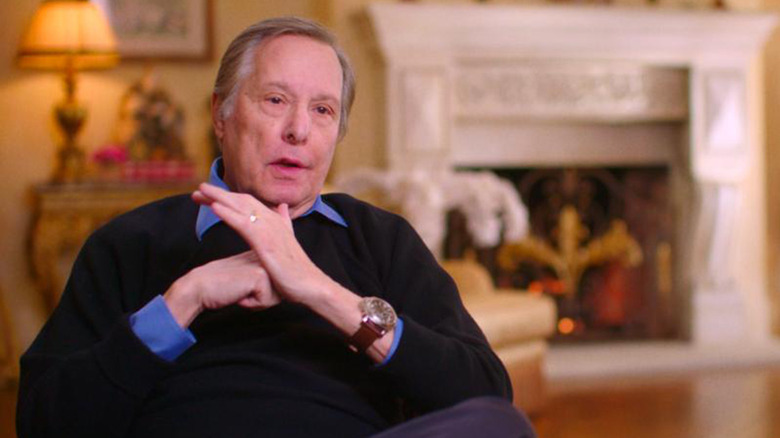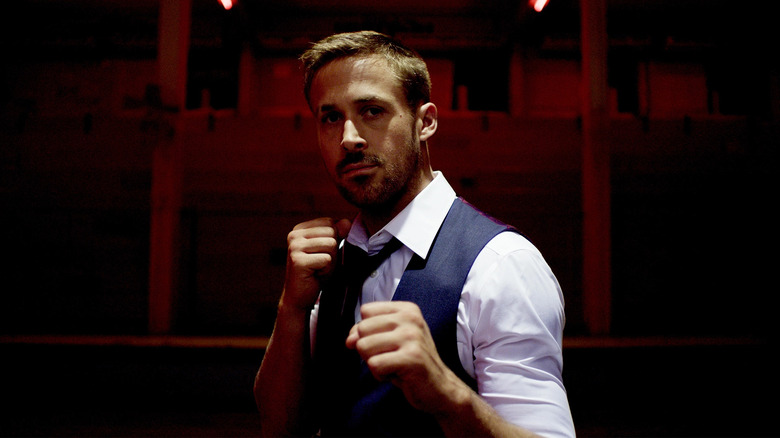William Friedkin's Smackdown Of Nicolas Winding Refn Cannot Be Missed
William Friedkin, the man who pivoted from playing basketball to becoming a journalist-turned-legendary-filmmaker because he wasn't tall enough, has died at age 87. Friedkin was truly an iconoclast of '70s filmmaking, a man who gave us not only one of the best horror movies of all time ("The Exorcist"), but also one of the best action movies of all time ("The French Connection"), with both continuing to influence and shape their respective genres so many decades after their initial releases.
As much as Friedkin gave the world of cinema — and continues to give, as his last movie is premiering this month — he was also a notorious sh*t-talker. Indeed, the director of "Sorcerer" and "To Live and Die in L.A." was also a man without a filter, and he was never afraid to give big shot Hollywood people what he thought they deserved. From his strong opinions on Oliver Stone, "Alexander" and DVDs, to Friedkin's unfulfilled dream of making a Hamlet movie and putting Clarence Caster's "Strokin" over the end credits, there is no shortage of great Friedkin interviews and stories.
There is arguably no better moment of pure Friedkin chaos than his total smackdown of Nicolas Winding Refn over his movie "Only God Forgives," which must simply be seen to be believed. The clip starts with Refn describing his own film (which is just okay) as a masterpiece, which immediately sets Friedkin off. The Oscar-winner instantly starts mockingly asking if there is a doctor in the house to check on Refn because he is talking nonsense.
Timing is everything
Though hilarious, Friedkin actually has a point in his smackdown of Refn. Not that "Only God Forgives" is bad (though it isn't good, either), but that the word "masterpiece" is thrown around without much thought.
When Refn tries to sneak another of his films, "Drive," into the same conversation as "Citizen Kane" and "2001: A Space Odyssey," Friedkin doubles down, saying they won't know if "Drive" is a masterpiece for another 30 years. They won't know "whether it lives or dies." Friedkin's argument, then, is that movies that are widely considered masterpieces or classics of cinema — like "2001" or "Citizen Kane" — are so because they've had decades to cement their status and reputation.
"Drive" was only four years old at the time of the interview, which Friedkin says is not even enough time to be considered "a blip, it's not a pimple on the a**hole of humanity." Friedkin doesn't care if the film is well-regarded, or if it's good, but it is not nearly old enough to stand the test of time.
And he is right. A little while back, a major publication referred to "Barbie" as a cult classic despite it being a bonafide hit and one of the highest-grossing movies of all time. Words like classic or masterpiece are frequently used in interviews posted the day a movie or show first premieres, rather than in retrospectives. What Friedkin argues is that the biggest factor in calling something a masterpiece is time, which no one has time for, apparently.
Any filmmaker can give words of wisdom, but few had the ability to utterly obliterate a fellow filmmaker and his work the way Friedkin could.

